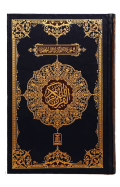EARLY SUFI WOMEN
By: Ibn Arabi
-
Rs 760.00
- Rs 950.00
- 20%
You save Rs 190.00.
Due to constant currency fluctuation, prices are subject to change with or without notice.
EARLY SUFI WOMEN- (Dhikr an-Niswa al-Muta ‘abbidāt as-Sūfiyyāt by Abu ‘Abd al-Rahmān as-Sulami)
This work is a translation of the long-lost Dhikr an-Niswat al-muta’abbideit as-sufistit (Book of Sufi Women), the influential work on Sufi women saints by Abu `Abd ar-Rahman as-Sulami (d. 1021), that was thought lost until 1991, when a unique manuscript of the work was found in Riyadh, Saudi Arabia which dates to the year 1084, only sixty-three year after the death of Sulami himself. This makes it one of the earliest manuscripts of Sulami’s works in existence arid the earliest work on Sufi women to appear in the Islamic hagiographical tradition. The work contains notices on eighty-four women and provides a picture of independent female spirituality in Islam that calls into question many long-held myths about the status of women in the Muslim world. Not only does Sufi spirituality possess a marked feminine dimension, but throughout the centuries numerous women in different areas of the Islamic world have participated in the spiritual teachings of Sufism. This classical work of Sulami is a precious testament to the role of women in the Sufi tradition in the past and to female spirituality in Islam in general. Rkia Cornell has meticulously translated and annotated this rich document, and her introduction clarifies the importance of the text in relation to the extensive writings of its author Sulami. …But the real payoff of this detailed scholarship has been to reveal this gem of feminine spirituality to a new audience.
EARLY SUFI WOMEN- (Dhikr an-Niswa al-Muta ‘abbidāt as-Sūfiyyāt by Abu ‘Abd al-Rahmān as-Sulami)
This work is a translation of the long-lost Dhikr an-Niswat al-muta’abbideit as-sufistit (Book of Sufi Women), the influential work on Sufi women saints by Abu `Abd ar-Rahman as-Sulami (d. 1021), that was thought lost until 1991, when a unique manuscript of the work was found in Riyadh, Saudi Arabia which dates to the year 1084, only sixty-three year after the death of Sulami himself. This makes it one of the earliest manuscripts of Sulami’s works in existence arid the earliest work on Sufi women to appear in the Islamic hagiographical tradition. The work contains notices on eighty-four women and provides a picture of independent female spirituality in Islam that calls into question many long-held myths about the status of women in the Muslim world. Not only does Sufi spirituality possess a marked feminine dimension, but throughout the centuries numerous women in different areas of the Islamic world have participated in the spiritual teachings of Sufism. This classical work of Sulami is a precious testament to the role of women in the Sufi tradition in the past and to female spirituality in Islam in general. Rkia Cornell has meticulously translated and annotated this rich document, and her introduction clarifies the importance of the text in relation to the extensive writings of its author Sulami. …But the real payoff of this detailed scholarship has been to reveal this gem of feminine spirituality to a new audience.
THE MECCAN REVELATIONS (Part-I & II) – Selected Texts of al-Futuhat al-Makkiya
By: Ibn Arabi
Rs 1,760.00 Rs 2,200.00 Ex Tax :Rs 1,760.00
Zubin Mehta: A Musical Journey (An Authorized Biography)
By: VOID - Bakhtiar K. Dadabhoy
Rs 892.50 Rs 1,050.00 Ex Tax :Rs 892.50
When I Dare to Be Powerful: Audre Lorde (Penguin Great Ideas)
By: Audre Lorde
Rs 1,795.50 Rs 1,995.00 Ex Tax :Rs 1,795.50
TALES OF MYSTIC MEANING -(Selections from the Mathnawi of Jal?l-ud-D?n R?m?)
By: Reynold A. Nicholson
Rs 637.50 Rs 750.00 Ex Tax :Rs 637.50
The Messenger: The Meanings of the Life of Muhammad
By: Tariq Ramadan
Rs 2,236.00 Rs 2,795.00 Ex Tax :Rs 2,236.00
Rumi :The Big Red Book The Great Masterpiece Celebrating Mystical Love And Friendship -
By: Coleman Barks
Rs 2,156.00 Rs 2,695.00 Ex Tax :Rs 2,156.00
Most Beautiful Names Of Allah
By: Samira Fayyad Khawaldeh
Rs 1,705.50 Rs 1,895.00 Ex Tax :Rs 1,705.50
When I Dare to Be Powerful: Audre Lorde (Penguin Great Ideas)
By: Audre Lorde
Rs 1,795.50 Rs 1,995.00 Ex Tax :Rs 1,795.50
TALES OF MYSTIC MEANING -(Selections from the Mathnawi of Jal?l-ud-D?n R?m?)
By: Reynold A. Nicholson
Rs 637.50 Rs 750.00 Ex Tax :Rs 637.50
Werewolf by Night: New Wolf Rising
By: Benjamin Jackendoff
Rs 2,205.75 Rs 2,595.00 Ex Tax :Rs 2,205.75
Adrift: A True Story of Love, Loss, and Survival at Sea - Paperback
By: Oldham Ashcraft
Rs 597.50 Rs 1,195.00 Ex Tax :Rs 597.50
The Woodsmoke Women's Book of Spells
By: Rachel Greenlaw
Rs 2,695.50 Rs 2,995.00 Ex Tax :Rs 2,695.50
Saves the World: Book 1 (Marie Curious, Girl Genius) - Paperback
By: Chris Edison
Rs 1,615.50 Rs 1,795.00 Ex Tax :Rs 1,615.50
Justice League Odyssey Vol. 4: Last Stand
By: Dan Abnett
Rs 3,225.75 Rs 3,795.00 Ex Tax :Rs 3,225.75
Sex Robots & Vegan Meat: Adventures at the Frontier of Birth, Food, Sex & Death
By: Jenny Kleeman
Rs 1,780.75 Rs 2,095.00 Ex Tax :Rs 1,780.75
The History Keepers: The Storm Begins - Paperback
By: Damian Dibben
Rs 1,355.75 Rs 1,595.00 Ex Tax :Rs 1,355.75
Zubin Mehta: A Musical Journey (An Authorized Biography)
By: VOID - Bakhtiar K. Dadabhoy
Rs 892.50 Rs 1,050.00 Ex Tax :Rs 892.50
THE MECCAN REVELATIONS (Part-I & II) – Selected Texts of al-Futuhat al-Makkiya
By: Ibn Arabi
Rs 1,760.00 Rs 2,200.00 Ex Tax :Rs 1,760.00
When I Dare to Be Powerful: Audre Lorde (Penguin Great Ideas)
By: Audre Lorde
Rs 1,795.50 Rs 1,995.00 Ex Tax :Rs 1,795.50
TALES OF MYSTIC MEANING -(Selections from the Mathnawi of Jal?l-ud-D?n R?m?)
By: Reynold A. Nicholson
Rs 637.50 Rs 750.00 Ex Tax :Rs 637.50















-120x187.jpg?q6)







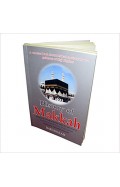
-(Urdu)-Hardcover-120x187.jpg?q6)

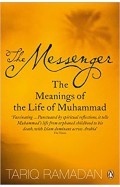
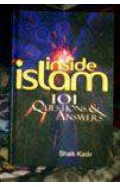


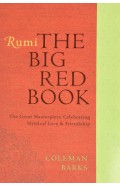
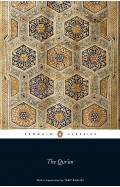
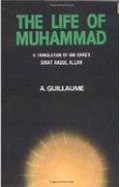


















-Paperback-120x187.jpg?q6)




